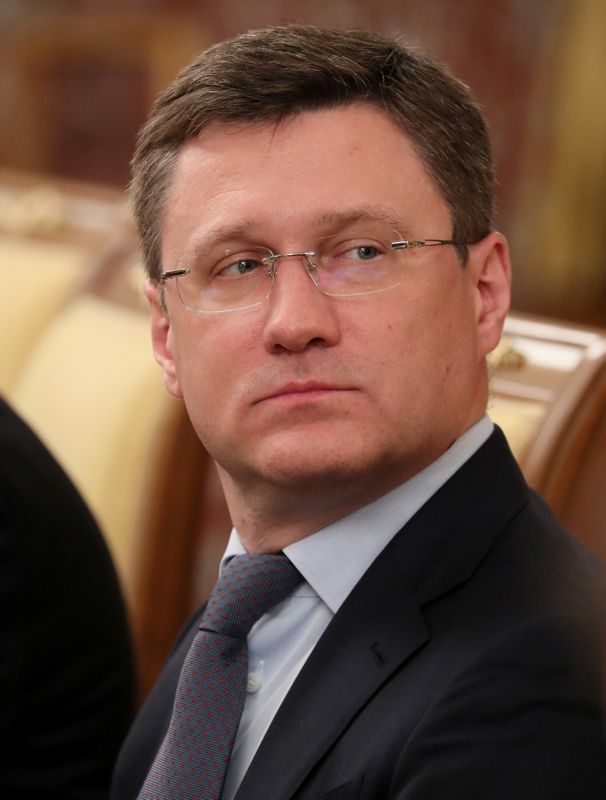By Vladimir Soldatkin and Olesya Astakhova
MOSCOW (Reuters) - Russian Energy Minister Alexander Novak said on Wednesday global oil demand, cut by up to a third by the coronavirus crisis, has hit its lowest, but said the market would be volatile until a global deal on output cuts takes effect from May 1.
"Today, we are probably at the most active stage of the global oil demand decline. According to various estimates, the decline has reached at the moment some 20-30 million barrels per day," Novak said at an online conference with lawmakers.
"This moment is the deepest (in decline) and it won't be permanent. We hope, that as the restrictive measures (related to the coronavirus) are lifted, demand would rise and this would stabilise the oil markets," Novak said.
The Organization of the Petroleum Exporting Countries and other large oil producers led by Russia, a group known as OPEC+, agreed earlier this month to cut their combined production by 9.7 million barrels per day in May-June to support the oil market.
Other leading oil producers, such as the United States, Norway and Canada, are also expected to join the cuts, which together with OPEC+ would total 20 million bpd, or around a fifth of global oil production.
Brent crude oil rose on Wednesday after slumping below $16 a barrel to its lowest since 1999, supported by the prospect of voluntary cuts in addition to the OPEC+ output deal.
On Monday, the front-month May U.S. contract fell into negative territory for the first time in history as traders paid buyers to take crude off their hands given a lack of storage space for the current supply glut.
Novak said that the decline was a result of speculative factors as well as the shortage of storage.
Although OPEC+ agreed to reduce output starting from May, producers are already considering further steps.
Saudi Arabia has said it was ready to take extra measures with other producers. Iraq made similar comments. The next formal OPEC+ meeting is in June.
Russia has also said that the deal could be adjusted if necessary.

The Kremlin said earlier on Wednesday it was too soon to draw any conclusions about possible additional steps to stem the slump in oil prices before the global deal agreed by the OPEC+ group takes effect.